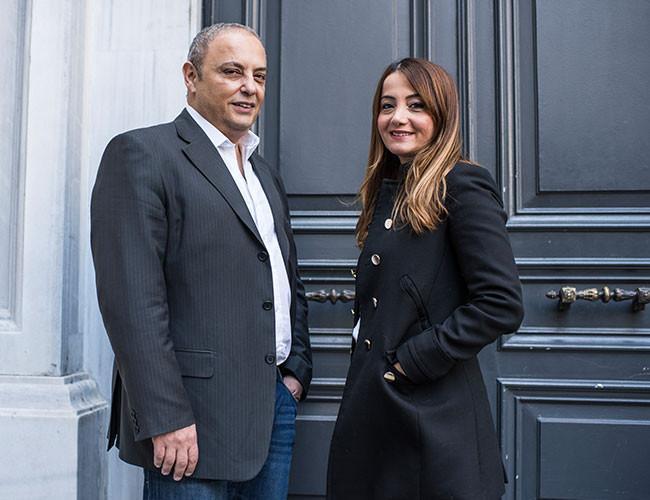
One of the reasons why the Arab Spring succeeded in Tunisia was the fact that the country has strong similarities with Turkey, rather than the rest of the Arab world, according to Safwan Masri, Executive Vice President for Global Centers and Global Development at Columbia University.
“The founder of the modern Republic of Turkey, Atatürk, had been a source of inspiration for the founder of independent Tunisia, Habib Bourguiba. So in Tunisia you have had generations of many people growing up similar to Turkish people: Secular, well-educated, and with women enjoying equal rights to men,” Masri told daily Hürriyet in an interview.
Masri’s latest book, “Tunisia: An Arab Anomaly,” was launched by the Columbia Global Center in Istanbul last week.
“Tunisia provided inspiration for youths in other countries to protest during the Arab Spring. But I think they were wrong to think that if it happened in Tunisia then it can happen in the same way other countries, because conditions in Tunisia were very different. It is a small country on the Mediterranean, away from the center of gravity of the post-colonial Arab world. It had the same borders for hundreds of years. It had a very strong sense of identity formed through multiple civilizations that contributed to its evolution, and this was not present in the post-colonial dynamics of the region. So Tunisia was protected and it was able to evolve in a way that was very different from the rest of the Arab world,” he said.
Among the main reasons for why the Arab Spring resulted in relative success in Tunisia were the policies of Habib Bourguiba, the founder and first president of independent Tunisia, according to Masri.
“Other post-colonial Arab leaders insisted on hyper-nationalist narratives to legitimize their regimes and build their militaries. But Bourguiba focused a lot on the rights of women, on education and secularism,” he said.
Despite Tunisia’s colonial history under France, Masri also stressed the importance of Tunisia’s relative insulation from foreign domination.
“It was secular and had a small, apolitical military, while well-educated people provided conditions that were very different from the rest of the Arab world. Finally - and very, very importantly - Tunisia has a long history of labor activism, which meant civil society engagement for a long time and which also meant experience with procedural democracy. Procedural democracy has been at work in Turkey for more than 100 years. Elsewhere in the Arab world, with the exception of Lebanon, there is no such civil society,” he said.
Touching on the fact that Turkey was cited as a “role model” for the Arab world during the Arab Spring, Masri noted that he looked at Turkey as a role model even before protests started in 2010.
“You had a secular, modern, economically prosperous Muslim-majority country in the region. It’s not like saying, ‘let’s model the Arab world after Malaysia or Indonesia.’ This is Turkey, it has a long history in the region and a geographical, cultural, historic proximity because of the Ottoman Empire. So the fact it serves as a model and source of inspiration makes a lot of sense,” he said.
“There were similarities at a high level. Both Atatürk and Bourguiba were visionary nation builders. Atatürk was a quintessential nation builder. He created the nation of Turkey and reset Turkey after the fall of the Ottoman Empire. As for Bourguiba, there was no other post-colonial Arab leader like him. Post-colonial Arab leaders were very focused on building their military, legitimizing their rule and building a highly nationalist narrative for their newly created nations. But in the case of Bourguiba’s Tunisia, the last thing he invented was the military and the first thing was education,” said Masri.
“Both Atatürk and Bourguiba were nation builders, confident, bold, visionary, well-educated, influenced by Western ideas and Western culture. They also did something similar with regard to religion, bringing it under state control and adopting the French model of secularism,” he added.